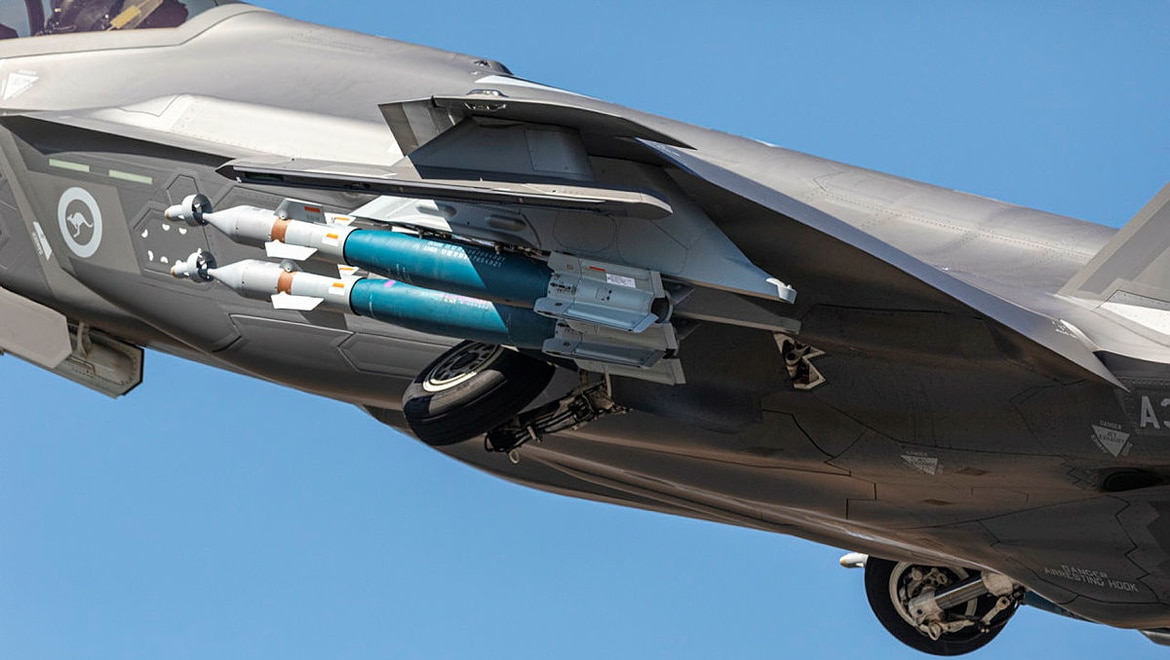A closer look at two RAAF F-35s that took flight with a full complement of weapons for the first time.
Defence has now released these incredible images showing the tooled-up aircraft in action last month during Exercise Arnhem Thunder 21.
More than 500 personnel and 50 aircraft are participating in the training exercise, the largest post-COVID, which will run until 15 June 2021 and focus on ‘force generation training’.
In addition to their internal payload, the F-35s departed with laser-guided GBU-12 bombs attached to their under-wing pylons.
The bombs were dropped on ground-based targets at the Delamere Air Weapons Range, located about 120 kilometres south of Katherine.
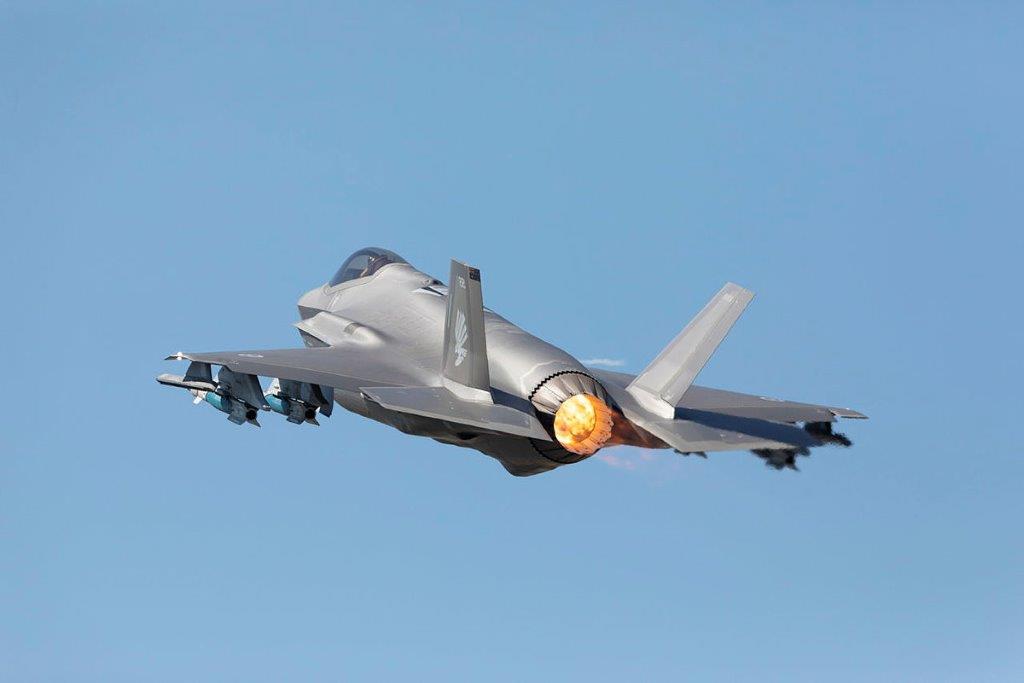
During the course of the exercise, 10 F-35As normally based at RAAF Base Williamtown will drop more than 50 inert GBU-12s.
Over the coming years, Australia will purchase 72 of the advanced fifth-generation fighter aircraft as part of the $17 billion AIR 6000 Phase 2A/B program – which is aimed at replacing the ageing F/A-18A/B Classic Hornets that have been in service with the RAAF since 1985.
The F-35A – the variant chosen by the RAAF – will have a projected life of 30 years in service and will also be based at RAAF Base Williamtown.
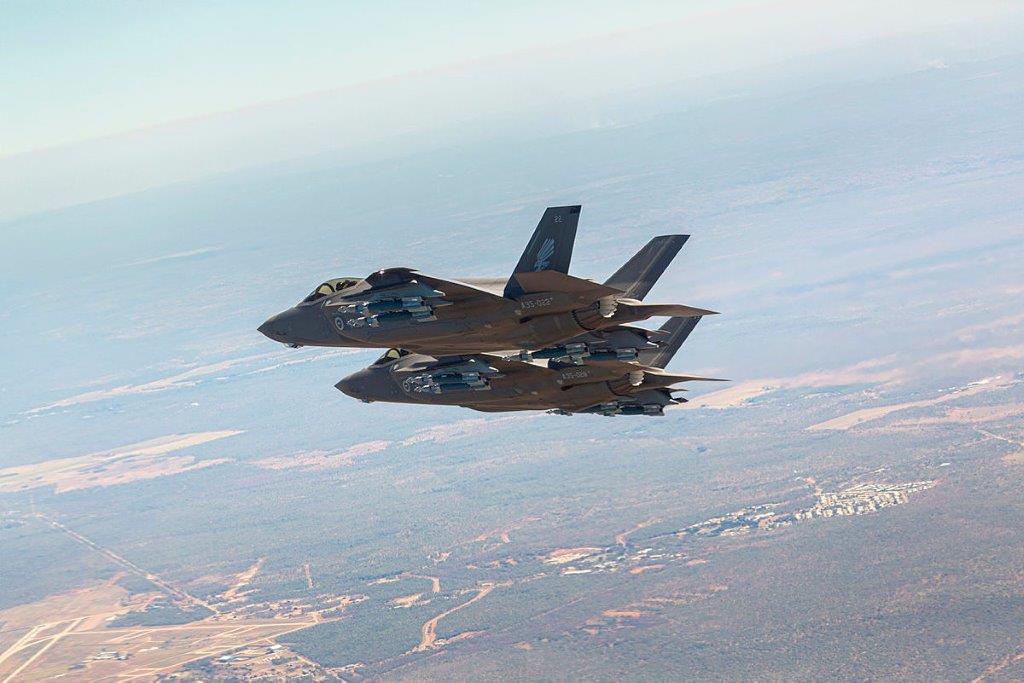
Australian Aviation last week also reported how a RAAF F-35 visited its soon-to-be new home of RAAF Base Tindal for the very first time.
Defence revealed the “flying visit” took place on 20 May. It came before some of the fleet take up full-time residence in Katherine, NT, in December.
The visit gave personnel hands-on exposure to the ground-handling aspects of the F-35A, including security, emergency response and base aviation safety.
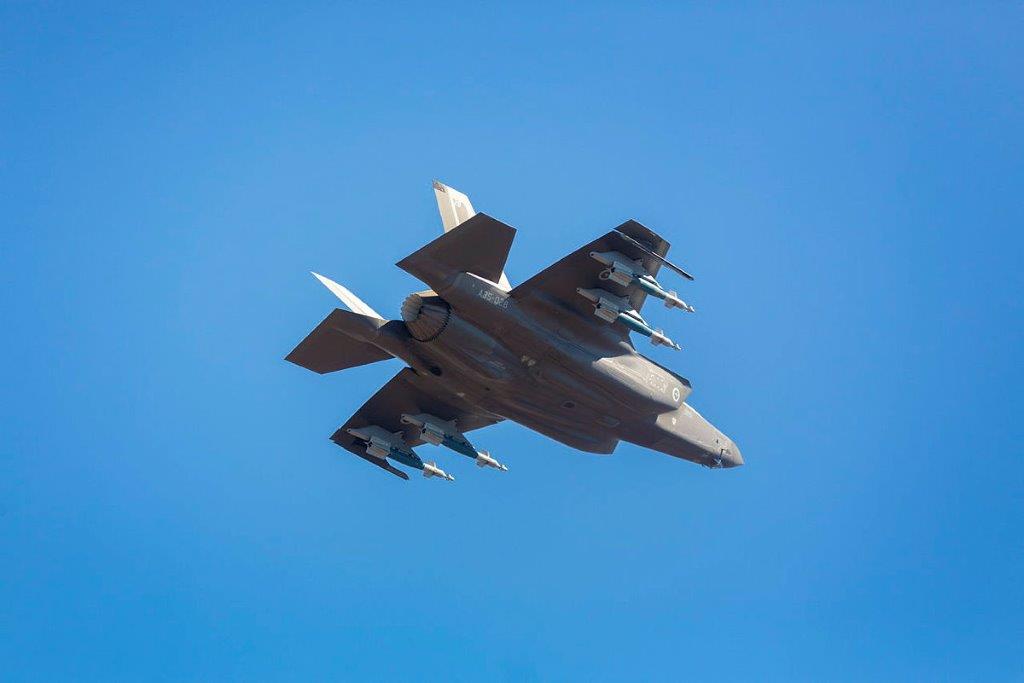
Tindal’s Senior Australian Defence Force Officer Wing Commander Shane Smith said, “I’ve been in the Air Force for almost 40 years and saw the first Hornets visit RAAF Base Edinburgh as part of their introduction to service, so to see their replacement fly into Tindal for the first time was both exciting and somewhat sad.
“But overwhelmingly, I felt the same pride that I did in the ’80s as a young 21-year-old on the tarmac watching the new F/A-18A Hornets taxi in – the F-35A forms an integral part of the Air Force’s next generation of air power and that’s very exciting.”
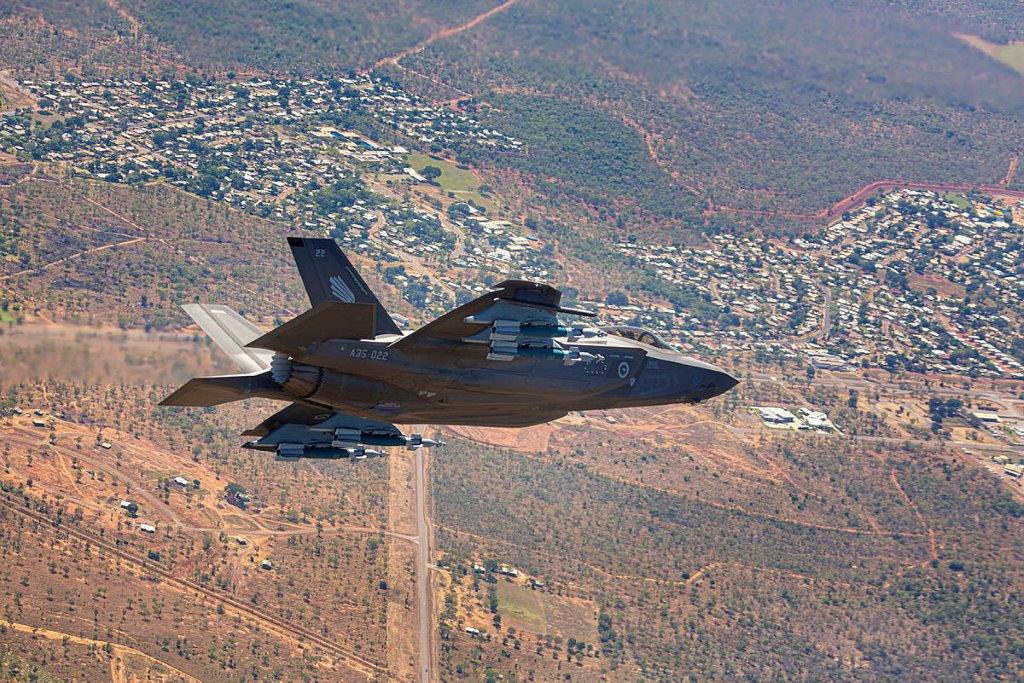
The aircraft that flew into RAAF Base Tindal is also the first F-35 to be assigned to No. 75 Squadron and had the tail number 029.
“The transition to the F-35A is the next big step for Tindal, a new capability that kicks off a large-scale upgrade to be a truly multi-role airbase capable of projecting the full range of air power across Australia and beyond,” WGCDR Smith said.
“Katherine welcomed the F-35A as it flew over the town on approach to the base – I’ve never met such a supportive community, and one that holds Tindal closely as a valued member of the region.”
Australia took delivery of three new F-35s in March, taking its current fleet to 33.
[Related: Fully-armed RAAF F-35s take flight for the first time]

